I trying to convert a given DateTime to NodaTime with timezone conversion, for display purposes. Even with 3 different attempts, I cannot get NodaTime to give me the expected results. Here is some sample code (given DateTime dt):
//option 1
NodaTime.DateTimeZone zone = NodaTime.DateTimeZoneProviders.Tzdb ["Africa/Johannesburg"];
NodaTime.LocalDateTime localDateTime = NodaTime.LocalDateTime.FromDateTime(dt);
NodaTime.ZonedDateTime zonedDateTime = localDateTime.InZoneStrictly(zone);
string str = zonedDateTime.ToString("H:mm:ss", System.Globalization.CultureInfo.InvariantCulture);
Debug.LogFormat ("TimeZone: {0}", zone);
Debug.LogFormat ("Option 1: {0} local: {1} zoned: {2}", str, localDateTime, zonedDateTime);
//option 2
NodaTime.Instant instant = NodaTime.Instant.FromDateTimeUtc (dt.ToUniversalTime ());
zonedDateTime = instant.InZone(zone);
str = zonedDateTime.ToString("H:mm:ss", System.Globalization.CultureInfo.InvariantCulture);
Debug.LogFormat ("Option 2: {0} instant: {1} zoned: {2}", str, instant, zonedDateTime);
//option 3
DateTime epochStart = new DateTime (1970, 1, 1, 0, 0, 0, DateTimeKind.Utc);
long epochSeconds = (long)(dt.ToUniversalTime()- epochStart).TotalSeconds;
instant = NodaTime.Instant.FromSecondsSinceUnixEpoch (epochSeconds);
zonedDateTime = instant.InZone(zone);
str = zonedDateTime.ToString("H:mm:ss", System.Globalization.CultureInfo.InvariantCulture);
Debug.LogFormat ("Option 3: {0} epoch: {1} instant: {2} zoned: {3}", str, epochSeconds, instant, zonedDateTime);
Running this in some country other than South Africa (such as in Israel, where I am sitting) yields the correct time for option 2 and 3. When I run it in South Africa itself, it doesn't work, time is off by one hour. Here is sample output (the correct would be the "17:55" values, e.g. options 2 and 3 for "My Computer"). Of course the culprit might be timezone or daylight savings differences rather than actual geographic location:
-----My COMPUTER (faking SA)------
TimeZone: Africa/Johannesburg
Option 1: 18:55:41 local: 09/01/2016 18:55:41 zoned: 2016-09-01T18:55:41 Africa/Johannesburg (+02)
Option 2: 17:55:41 instant: 2016-09-01T15:55:41Z zoned: 2016-09-01T17:55:41 Africa/Johannesburg (+02)
Option 3: 17:55:41 epoch: 1472745341 instant: 2016-09-01T15:55:41Z zoned: 2016-09-01T17:55:41 Africa/Johannesburg (+02)
----Their COMPUTER (in SA)------ TimeZone: Africa/Johannesburg
Option 1: 18:55:41 local: 9/1/2016 6:55:41 PM zoned: 2016-09-01T18:55:41 Africa/Johannesburg (+02)
Option 2: 18:55:41 instant: 2016-09-01T16:55:41Z zoned: 2016-09-01T18:55:41 Africa/Johannesburg (+02)
Option 3: 18:55:41 epoch: 1472748941 instant: 2016-09-01T16:55:41Z zoned: 2016-09-01T18:55:41 Africa/Johannesburg (+02)
How can I make sure that my DateTime -> NodaTime outputs are consistent, regardless of current location?
